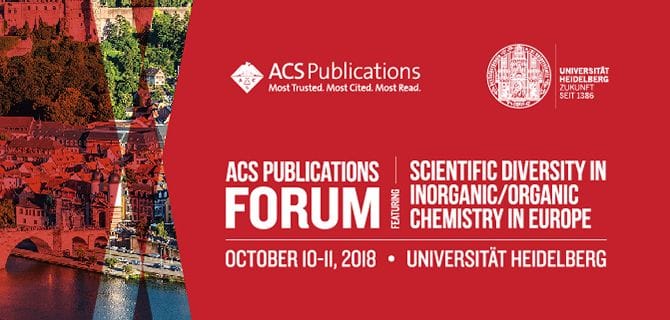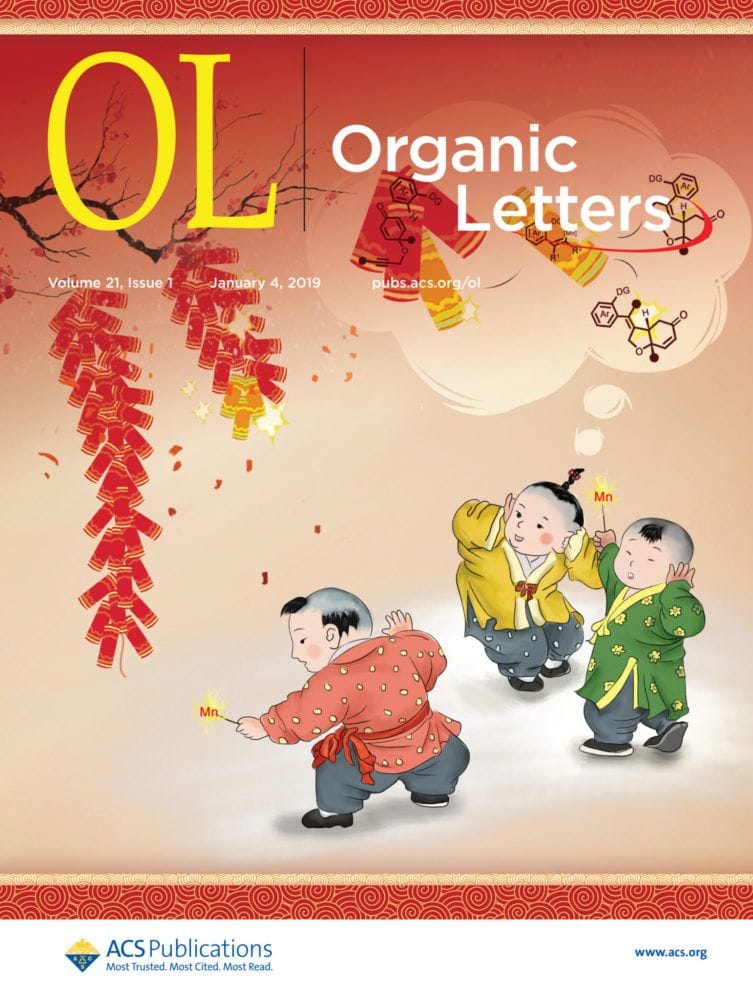This year, Organic Letters is celebrating its 20th year as the highest impact communications journal in the field.

Smith, the journal’s Associate Editors, and other members of the community celebrated Organic Letters’ history and accomplishments earlier this year at the 255th ACS National Meeting & Exposition in New Orleans.
2 Decades of Being Exactly Where You Want to Be
Since then, Smith’s commitment to thorough peer review, data standards, and timely publication have made Organic Letters the go-to communications journal for research in organic chemistry. To date, it has published more than 28,000 Letters from all over the world.
In 2016, the most-read article across all ACS Publications journals was from Organic Letters—Jacqueline L. (von Salm) Fries’ Letter “Darwinolide, a New Diterpene Scaffold That Inhibits Methicillin-Resistant Staphylococcus aureus Biofilm from the Antarctic Sponge Dendrilla membranosa” (DOI: 10.1021/acs.orglett.6b00979).
Her Letter describes the groundbreaking isolation of darwinolide, a compound shown to kill highly resistant MRSA bacteria. The compound comes from the Dendrilla membranosa sponge found in Antarctica. Fries’ work was honored at the 253rd ACS National Meeting in San Francisco, where a giant mosaic was created with attendee photographs.
Be part of Organic Letters’ next 20 years—submit your research.
What’s Next for Organic Letters?
After launching Organic Letters and leading the journal for two decades, Professor Smith will retire from his role as Editor-in-Chief at the end of 2018. Professor Smith set a strong foundation for Organic Letters as a journal renowned for excellence, visibility, impact, and leadership in implementing technological innovations that will serve the journal well in its next 20 years.
Before he retires as Editor-in-Chief, Professor Smith is leading Organic Letters in another first. This fall he is part of organizing the ACS Publications Forum: Scientific Diversity in Inorganic/Organic Chemistry in Europe. The two-day event is co-organized by Organic Letters, Inorganic Chemistry, The Journal of Organic Chemistry, and Organometallics.
Dates: October 10-11, 2018
Location: Heidelberg University
Registration: Free, but attendees must register in advance

The forum will feature talks by European scientists doing a wide variety of research that connects to inorganic, organic, and organometallic chemistry—both in traditional terms and in newer, multidisciplinary ways, as Smith and his fellow Editors-in-Chief write in their August 28 Editorial “Straddling the Rooftop: Finding a Balance between Traditional and Modern Views of Chemistry” (DOI: 10.1021/acs.orglett.8b02620):
“The diversity in topics to be covered by the lecturers is striking. They range from polymer synthesis, catalyst development, coordination chemistry, bioorganic/medicinal chemistry, organocatalysis, photochemistry, organometallic chemistry, inorganic cluster compounds, and small-molecule activation, among others. Certainly, some of the topics are in the ‘wheelhouse’, so to speak, of traditional inorganic and organic chemistry disciplines, but many of the lectures will feature work that extends well beyond, stretching the traditional boundaries significantly.”
Register today to attend the ACS Publications Forum: Scientific Diversity in Inorganic/Organic Chemistry in Europe!
